Step into the glitzy world of casinos, where flashing lights and exhilarating sounds create an atmosphere that both captivates and confounds. But beyond the thrill of chance lies a complex interplay of psychological principles that shape how we gamble. Why do some players walk away as winners while others chase losses? What triggers our instincts to place another bet or hit the jackpot button one last time? In this blog post, we’ll delve deep into the fascinating psychology behind gambling behavior—unpacking concepts like risk perception, cognitive biases, and reward systems—that reveal how our minds influence every spin of the roulette wheel and shuffle of cards.
The Thrill of the Win (and Almost Win)
One of the most potent psychological triggers in gambling is the rush you get from winning. Whether you’re playing slots, poker, or roulette, the excitement of hitting the jackpot is undeniable. Even an “almost win,” where you come close but just miss out, can release a surge of dopamine—the same chemical in your brain that’s linked to pleasure and reward. The problem is that these feelings can keep you playing longer than intended. To stay in control, it’s important to recognize when you’re chasing that high and set boundaries for yourself, like deciding in advance how much time or money you’re willing to spend.
Loss Aversion
Loss aversion is a psychological concept that suggests people feel the pain of losing more intensely than the pleasure of winning. In the context of gambling, this can lead to a dangerous cycle of trying to “win back” losses, also known as chasing losses. If you’ve ever found yourself doubling down after a losing streak in the hopes of breaking even, you’re not alone. Many players fall into this pattern, but it’s important to recognize when it’s happening and step back. Set a loss limit before you start gambling, and stick to it, no matter what.
The Gambler’s Fallacy
The gambler’s fallacy is a common psychological pitfall affecting experienced players. This is the belief that if something hasn’t happened in a while, it will happen soon. For example, if a roulette wheel has landed on black several times in a row, you might think it’s “due” to land on red.
Each spin is independent, and the odds don’t change based on previous outcomes. Believing in the gambler’s fallacy can lead to poor decision-making and overspending. The best way to avoid falling into this trap is to remember that luck isn’t predictable, and outcomes in gambling are always random.
The Illusion of Control
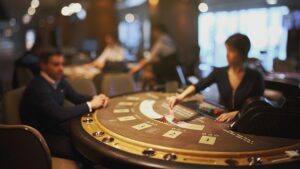 When gambling, it’s easy to feel like you have more control over the outcome than you do. This illusion of control is especially common in games like poker, where skill does play a role, but luck is still a significant factor. Even in games of pure chance, like slot machines, players often feel that their actions—like pressing the button at the “right time”—can influence the outcome. The truth is that most casino games are designed to favor the house, and no amount of “strategy” can change the odds. By acknowledging the role of chance and not overestimating your control, you can keep your expectations in check and avoid frustration.
When gambling, it’s easy to feel like you have more control over the outcome than you do. This illusion of control is especially common in games like poker, where skill does play a role, but luck is still a significant factor. Even in games of pure chance, like slot machines, players often feel that their actions—like pressing the button at the “right time”—can influence the outcome. The truth is that most casino games are designed to favor the house, and no amount of “strategy” can change the odds. By acknowledging the role of chance and not overestimating your control, you can keep your expectations in check and avoid frustration.
The Sunk Cost Fallacy
The sunk cost fallacy is another psychological trap that can lead to poor gambling decisions. This occurs when you continue investing time or money into something just because you’ve already invested a significant amount. In gambling, this might look like continuing to play a game because you’ve already spent a lot of money on it and don’t want to walk away without a win. The problem is that the money you’ve already spent is gone, and continuing to gamble won’t change that. Instead of thinking about what you’ve lost, focus on what you still have and whether it’s worth risking more. Casino gambling can be a fun and exciting way to pass the time, but understanding the psychological factors at play is critical to staying in control. From the thrill of the win to the temptation to chase losses, being aware of these triggers can help you make better decisions and avoid unhealthy gambling habits. You can enjoy the experience without letting it take over by setting limits and keeping a clear head.…

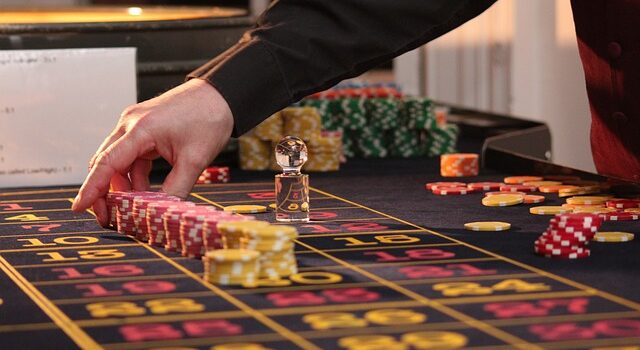


 When it comes to playing card games in online casinos, there is always a financial risk involved. It’s important to be aware of this before diving into the world of online gambling. First and foremost, it’s crucial to set a budget for yourself. Determine how much money you are willing to spend on your gaming activities and stick to that limit. This will help prevent any potential financial hardships down the line. Another aspect of financial risk is understanding the odds and probabilities associated with different card games. Each game has its own house edge, which gives the casino an advantage over players in the long run.
When it comes to playing card games in online casinos, there is always a financial risk involved. It’s important to be aware of this before diving into the world of online gambling. First and foremost, it’s crucial to set a budget for yourself. Determine how much money you are willing to spend on your gaming activities and stick to that limit. This will help prevent any potential financial hardships down the line. Another aspect of financial risk is understanding the odds and probabilities associated with different card games. Each game has its own house edge, which gives the casino an advantage over players in the long run. When it comes to playing
When it comes to playing 


 A legitimate online casino will usually feature software developed by a well-known and respected provider. These providers are highly regulated and must pass stringent tests before providing their products to casinos.
A legitimate online casino will usually feature software developed by a well-known and respected provider. These providers are highly regulated and must pass stringent tests before providing their products to casinos. A legitimate online casino will feature a wide variety of secure banking options. Well-known payment providers such as Visa, Mastercard, Neteller, and Skrill should be listed. Also, check payout terms and conditions before signing up with any site.
A legitimate online casino will feature a wide variety of secure banking options. Well-known payment providers such as Visa, Mastercard, Neteller, and Skrill should be listed. Also, check payout terms and conditions before signing up with any site.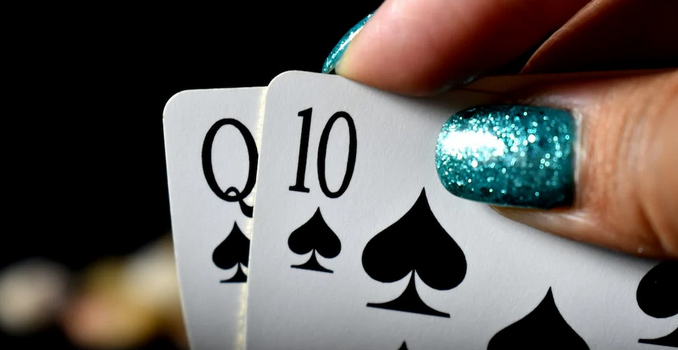
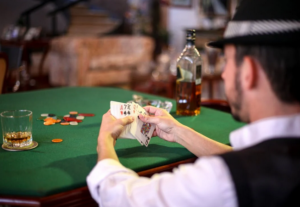 The first thing you need to do when feeling pressure is to take a step back and focus on the process, not the outcome. This means that you should be thinking about each hand and decision you make rather than the final result of the game. When you’re focused on the process, you’re more likely to make the correct decisions because you’re not getting caught up in the emotion of the moment.
The first thing you need to do when feeling pressure is to take a step back and focus on the process, not the outcome. This means that you should be thinking about each hand and decision you make rather than the final result of the game. When you’re focused on the process, you’re more likely to make the correct decisions because you’re not getting caught up in the emotion of the moment.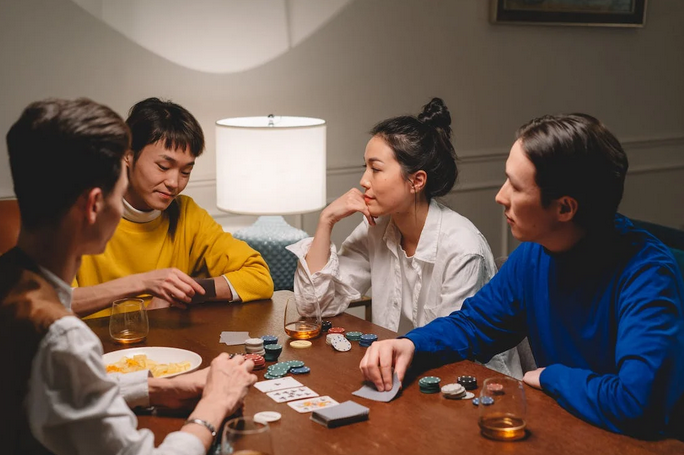
 When under pressure, it’s easy to focus on the short term and forget about the long term. But if you want to be successful in poker, you need to think about the long term. This means that you shouldn’t make decisions that will put you at a disadvantage in the future, even if they might help you win the current hand. For example, if you’re on a losing streak and you’re tempted to go all-in to try and turn things around, resist the urge and think about your long-term goals.
When under pressure, it’s easy to focus on the short term and forget about the long term. But if you want to be successful in poker, you need to think about the long term. This means that you shouldn’t make decisions that will put you at a disadvantage in the future, even if they might help you win the current hand. For example, if you’re on a losing streak and you’re tempted to go all-in to try and turn things around, resist the urge and think about your long-term goals.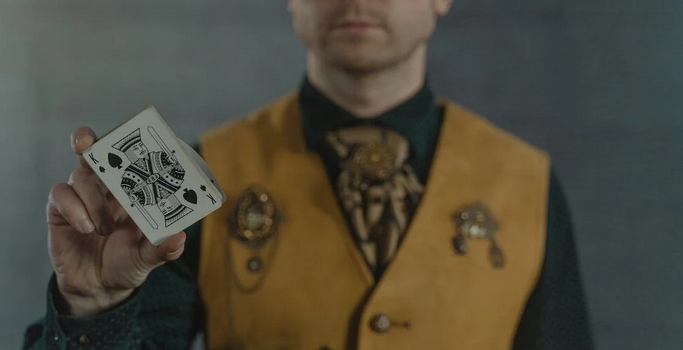
 There are many popular movies and TV shows that feature gambling. While some glamorize the activity, others show the darker side of gambling addiction. One movie that comes to mind is The Hangover. In this comedy, a group of friends goes to Las Vegas for a bachelor party, and things quickly get out of hand. They end up losing all of their money and have to find a way to get it back.
There are many popular movies and TV shows that feature gambling. While some glamorize the activity, others show the darker side of gambling addiction. One movie that comes to mind is The Hangover. In this comedy, a group of friends goes to Las Vegas for a bachelor party, and things quickly get out of hand. They end up losing all of their money and have to find a way to get it back.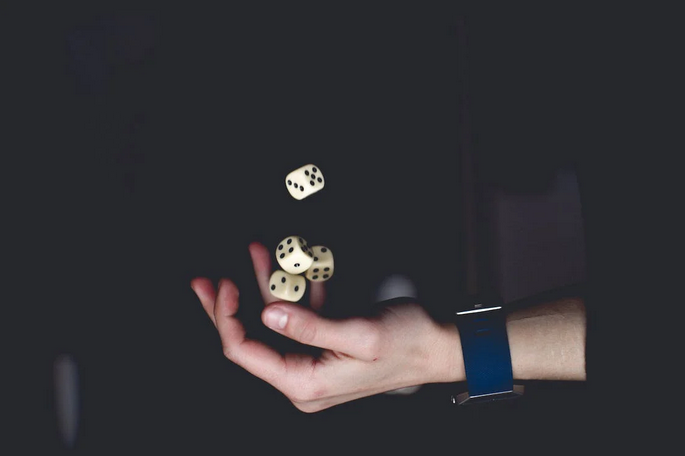 The best way to learn about gambling is to visit a casino and observe how the games are played. This will give you a better understanding of the rules and etiquette of each game. You can also ask the casino staff questions about the games. The good news is that most casino staff will be more than happy to help you out.
The best way to learn about gambling is to visit a casino and observe how the games are played. This will give you a better understanding of the rules and etiquette of each game. You can also ask the casino staff questions about the games. The good news is that most casino staff will be more than happy to help you out.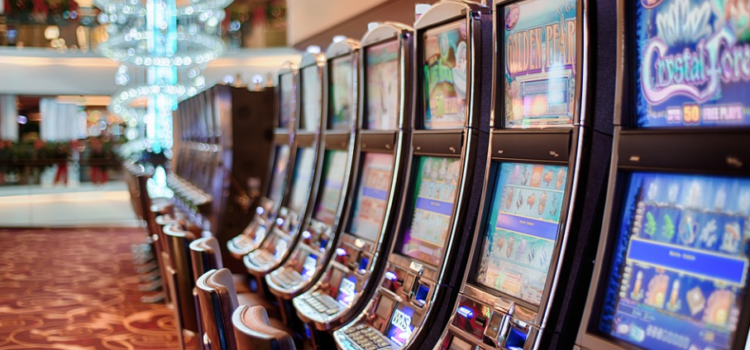
 if you want to increase your chances of winning and thus have more fun, focus on playing a skill-based game. The most popular casino games are slots and roulette, but many other options fall into this category, including blackjack, baccarat, and poker.
if you want to increase your chances of winning and thus have more fun, focus on playing a skill-based game. The most popular casino games are slots and roulette, but many other options fall into this category, including blackjack, baccarat, and poker.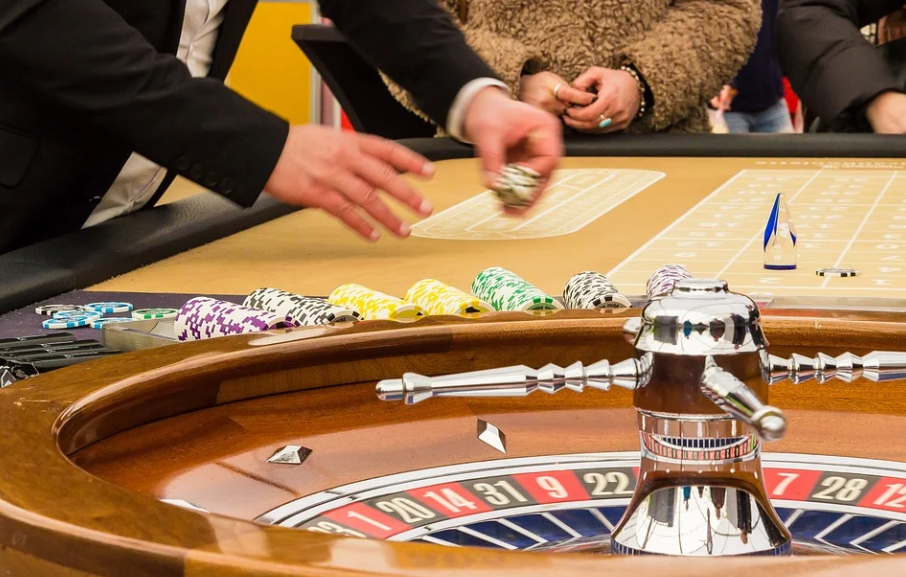 You get free money to play with when you take advantage of casino promotions. This is a great way to increase your bankroll and, thus, your chances of winning. Many casinos offer promotional offers such as match bonuses, reload bonuses, and even cash-back offers.
You get free money to play with when you take advantage of casino promotions. This is a great way to increase your bankroll and, thus, your chances of winning. Many casinos offer promotional offers such as match bonuses, reload bonuses, and even cash-back offers.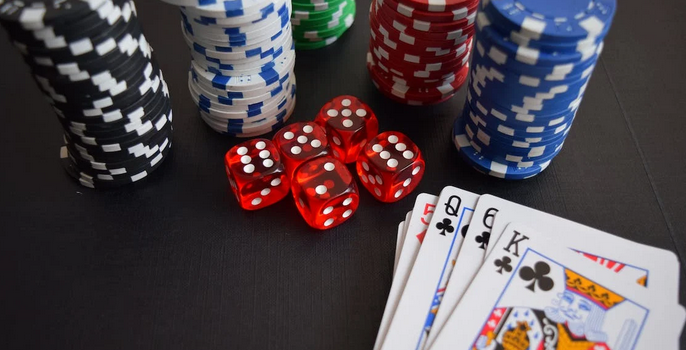
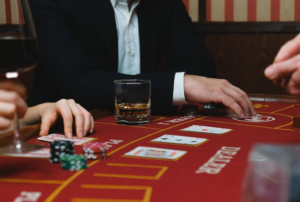 This is probably the most crucial strategy you must remember when playing Texas Hold’em Poker. You see, many players make the mistake of entering the pot with a hand that is not strong enough. As a result, they end up losing money. So, if you want to win at Texas Hold’em Poker, you must make sure you enter the pot with a strong hand. If you have a pair of Aces or Kings, you have a good chance of winning. However, your chances of winning are not as good if you have a pair of twos or threes.
This is probably the most crucial strategy you must remember when playing Texas Hold’em Poker. You see, many players make the mistake of entering the pot with a hand that is not strong enough. As a result, they end up losing money. So, if you want to win at Texas Hold’em Poker, you must make sure you enter the pot with a strong hand. If you have a pair of Aces or Kings, you have a good chance of winning. However, your chances of winning are not as good if you have a pair of twos or threes.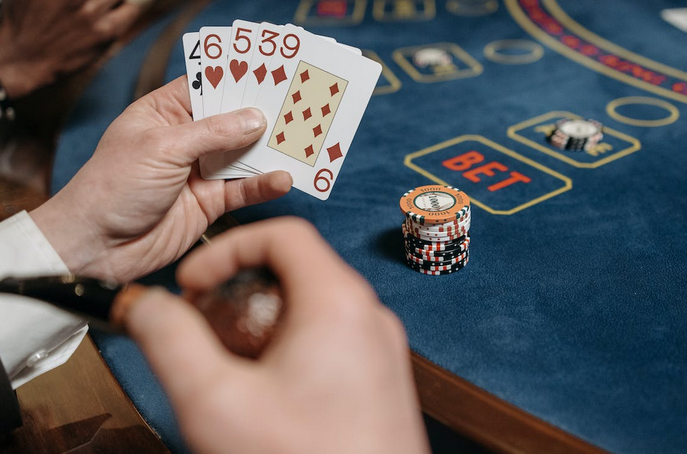
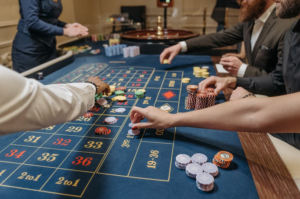 We can’t expect the game of poker to be easy. There will be times when we are under pressure, and we need to know how to stay calm under pressure. Sometimes, the best way to keep calm is to take a break from the game. If you’re starting to get tense, take a few deep breaths and try to relax. Once you’ve calmed down, you can start playing again.
We can’t expect the game of poker to be easy. There will be times when we are under pressure, and we need to know how to stay calm under pressure. Sometimes, the best way to keep calm is to take a break from the game. If you’re starting to get tense, take a few deep breaths and try to relax. Once you’ve calmed down, you can start playing again.
 In addition to the wagering requirements, you’ll also want to check for any playthrough requirements. These requirements will dictate how many times you need to play through the bonus amount before you can cash out.
In addition to the wagering requirements, you’ll also want to check for any playthrough requirements. These requirements will dictate how many times you need to play through the bonus amount before you can cash out. When choosing an online casino bonus, it’s also essential to make sure you’re familiar with the games offered. Some rewards may only be available for certain games, such as slots or blackjack. If you’re not familiar with the game offerings of a particular casino, it’s essential to do your research before claiming a bonus. This way, you can be sure that you’re taking advantage of a bonus that you’ll be able to use. You should also take the time to research the specific game requirements for each bonus.
When choosing an online casino bonus, it’s also essential to make sure you’re familiar with the games offered. Some rewards may only be available for certain games, such as slots or blackjack. If you’re not familiar with the game offerings of a particular casino, it’s essential to do your research before claiming a bonus. This way, you can be sure that you’re taking advantage of a bonus that you’ll be able to use. You should also take the time to research the specific game requirements for each bonus.
 The first step to becoming a casino gambling pro is learning and studying. This means familiarizing yourself with the different types of games available and how to play them. It would help if you also took some time to learn about betting strategies and how to manage your money while playing. Many resources are available online and in libraries that can help you with this. Once you have a good understanding of the basics, you can start practising your skills. One important thing to remember is that casino gambling is a game of chance. This means that there is no sure way to win every time. However, by learning and studying, you can increase your chances of winning.
The first step to becoming a casino gambling pro is learning and studying. This means familiarizing yourself with the different types of games available and how to play them. It would help if you also took some time to learn about betting strategies and how to manage your money while playing. Many resources are available online and in libraries that can help you with this. Once you have a good understanding of the basics, you can start practising your skills. One important thing to remember is that casino gambling is a game of chance. This means that there is no sure way to win every time. However, by learning and studying, you can increase your chances of winning.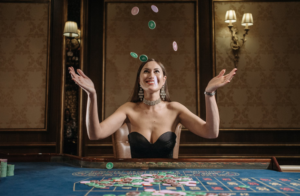 The first step to becoming a pro at casino gambling is to manage your money properly. This means setting a budget and sticking to it. It also means knowing when to walk away from the table. A pro gambler knows how to control their bankroll and doesn’t chase losses.
The first step to becoming a pro at casino gambling is to manage your money properly. This means setting a budget and sticking to it. It also means knowing when to walk away from the table. A pro gambler knows how to control their bankroll and doesn’t chase losses.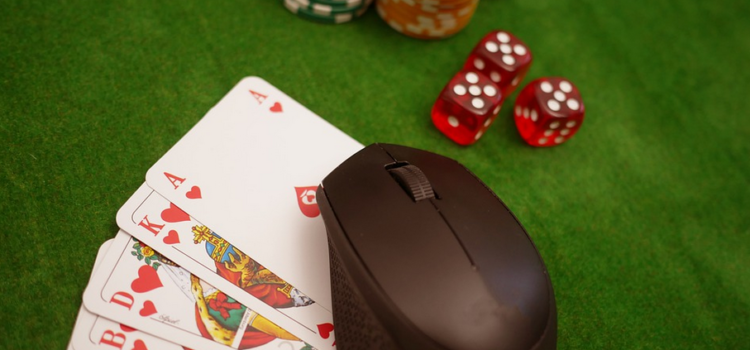
 When choosing an online casino, it is crucial to consider the casino’s reputation. Do your research and read reviews from other players to get a sense of what kind of experience you can expect. The best casinos will have a good reputation for providing fair games, protecting player information, and offering excellent customer support. Another factor to consider is game selection. The best casinos offer various games, including slots, table games, and live dealer games. Make sure the casino you choose has your favorite games available.
When choosing an online casino, it is crucial to consider the casino’s reputation. Do your research and read reviews from other players to get a sense of what kind of experience you can expect. The best casinos will have a good reputation for providing fair games, protecting player information, and offering excellent customer support. Another factor to consider is game selection. The best casinos offer various games, including slots, table games, and live dealer games. Make sure the casino you choose has your favorite games available. Many online casinos offer generous bonuses and promotions to lure new players in. Be sure to check out the terms and conditions of any rewards you are considering, as some casinos have wagering requirements that can be difficult to meet.
Many online casinos offer generous bonuses and promotions to lure new players in. Be sure to check out the terms and conditions of any rewards you are considering, as some casinos have wagering requirements that can be difficult to meet. If you ever have a question or problem while playing at an online casino, it is vital to have access to reliable customer support. The best casinos offer 24/24 customer support through multiple channels like email, telephone, and live chat. This ensures that you will get help when you need it, regardless of the time of day or night! Another factor to consider when choosing an online casino is the website language. The best casinos offer websites in multiple languages, so you can easily find one translated into your native language. This makes navigating the site and playing games much easier.…
If you ever have a question or problem while playing at an online casino, it is vital to have access to reliable customer support. The best casinos offer 24/24 customer support through multiple channels like email, telephone, and live chat. This ensures that you will get help when you need it, regardless of the time of day or night! Another factor to consider when choosing an online casino is the website language. The best casinos offer websites in multiple languages, so you can easily find one translated into your native language. This makes navigating the site and playing games much easier.…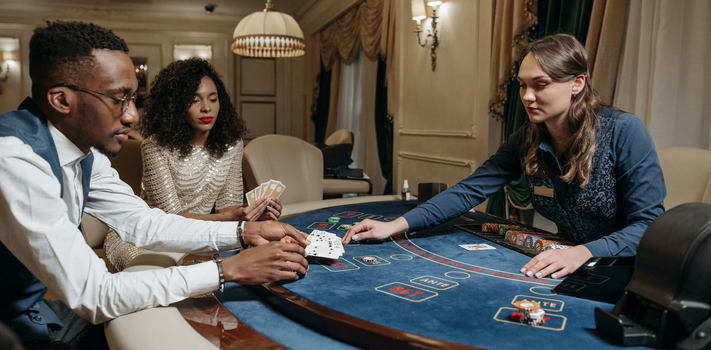
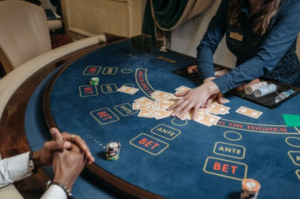 The impossible three-card trick is another easy card trick you can perform with a deck of cards. This trick requires some basic sleight of hand skills and practice. You will need to secretly select three cards from the deck and memorize them to perform this trick. Then, you will ask your spectator to choose three cards from the deck and remember them. You will ask the spectator to shuffle the deck and place it on the table. Then you will take the top three cards off of the deck and reveal that they are all the same card (the spectator’s chosen card). You will need to secretly select three cards from the deck and memorize them to perform this trick.
The impossible three-card trick is another easy card trick you can perform with a deck of cards. This trick requires some basic sleight of hand skills and practice. You will need to secretly select three cards from the deck and memorize them to perform this trick. Then, you will ask your spectator to choose three cards from the deck and remember them. You will ask the spectator to shuffle the deck and place it on the table. Then you will take the top three cards off of the deck and reveal that they are all the same card (the spectator’s chosen card). You will need to secretly select three cards from the deck and memorize them to perform this trick.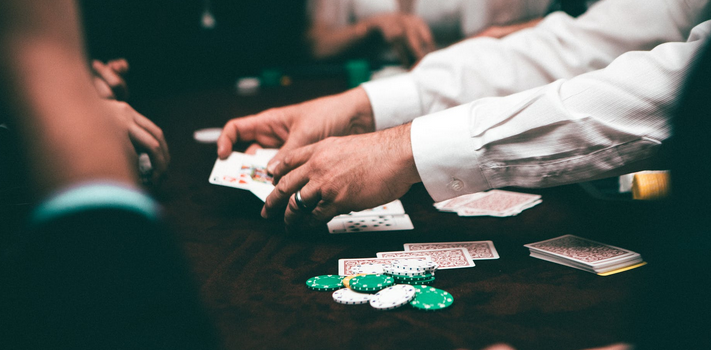
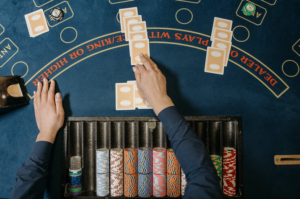 The best Canadian online casinos can be found on our above link, so do a quick search, and you’ll find all of the reputable sites that our team has vetted. We’ve also included a full guide to help you get started, so even if this is your first time gambling online, we can point you in the right direction!
The best Canadian online casinos can be found on our above link, so do a quick search, and you’ll find all of the reputable sites that our team has vetted. We’ve also included a full guide to help you get started, so even if this is your first time gambling online, we can point you in the right direction!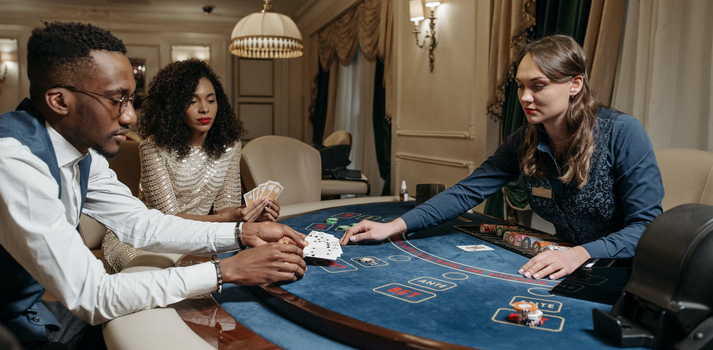
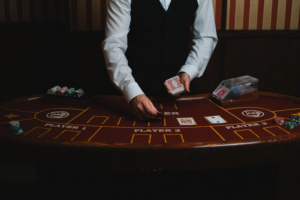 Poker has a lot of little things that you have to keep track of to play the game well. The most important is understanding your chances at winning hands based on what’s already been dealt out and how many cards are left in the deck.
Poker has a lot of little things that you have to keep track of to play the game well. The most important is understanding your chances at winning hands based on what’s already been dealt out and how many cards are left in the deck.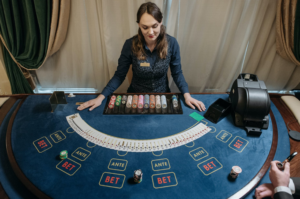 One of the biggest reasons poker tricks are essential is that you become more in control over your emotions during gameplay. If an opponent makes a ridiculous bet and it seems like they’re bluffing, but there’s no way to know what their cards look like, then your best option would be to fold.
One of the biggest reasons poker tricks are essential is that you become more in control over your emotions during gameplay. If an opponent makes a ridiculous bet and it seems like they’re bluffing, but there’s no way to know what their cards look like, then your best option would be to fold.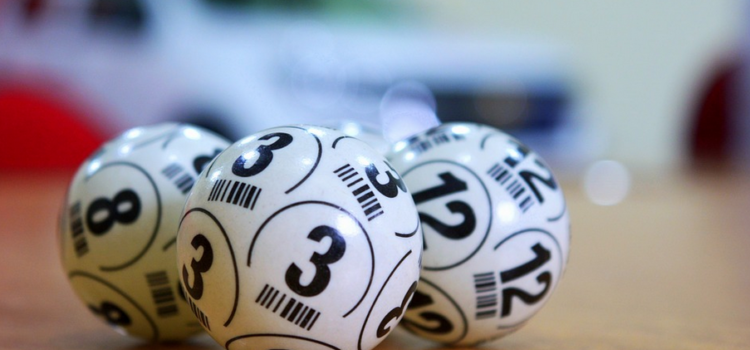
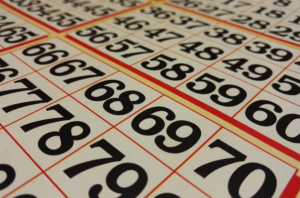 When there’s a pandemic happening, chances are you won’t be able to hang out with your friends in a bar or go outside at all because the government will ask us to self-quarantine in an effort to curb the spread of the virus.
When there’s a pandemic happening, chances are you won’t be able to hang out with your friends in a bar or go outside at all because the government will ask us to self-quarantine in an effort to curb the spread of the virus.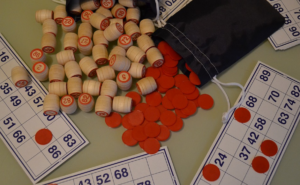 During a pandemic, things can get boring quickly, and we all need to fight the urge to go outside. Playing bingo online is a fun and safe way to keep yourself entertained. But it’s also beneficial because many people who play during a pandemic do so on public sites like the CDC-approved one we recommend, which means that there are fewer germs around you than if you were going outside or even playing in person; with friends! Just make sure to follow the CDC’s guidelines, and you’ll be fine.
During a pandemic, things can get boring quickly, and we all need to fight the urge to go outside. Playing bingo online is a fun and safe way to keep yourself entertained. But it’s also beneficial because many people who play during a pandemic do so on public sites like the CDC-approved one we recommend, which means that there are fewer germs around you than if you were going outside or even playing in person; with friends! Just make sure to follow the CDC’s guidelines, and you’ll be fine.
 The interesting features, and apart from online casino games, online casinos offer many other fascinating options. The online gaming segment offers many of the best regular games like bingo, online poker champion and online land, etc. Likewise, if you like sports betting, you can bet on many unique games as well. For this reason, you might have a great time if you prefer to play casino games along with other games in the conventional gaming area.
The interesting features, and apart from online casino games, online casinos offer many other fascinating options. The online gaming segment offers many of the best regular games like bingo, online poker champion and online land, etc. Likewise, if you like sports betting, you can bet on many unique games as well. For this reason, you might have a great time if you prefer to play casino games along with other games in the conventional gaming area. As far as security is concerned, the
As far as security is concerned, the 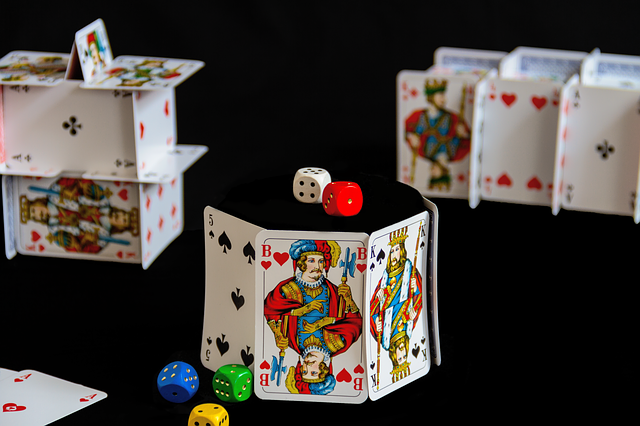
 Slot machines are most apparently the most popular sort of online casino internet, and you will find so many of them on each internet casino site you’re most becoming to. Online casino slot machines have been scam directed by three or more reels, spinning if the person stimulates the handle on the machine’s exterior. The machine is going to cover off as soon as the symbols match. From time to time, the assistant can win with two characters that are correspondence. It is the same with an online casino slot machine. The associate will pay a particular quantity of cash with a credit card and then snap on the icon to play. As a projection of modern computer technology, there are now many modifications of the slot machine concept, revealing approximately 70 percent of the average casino profits.
Slot machines are most apparently the most popular sort of online casino internet, and you will find so many of them on each internet casino site you’re most becoming to. Online casino slot machines have been scam directed by three or more reels, spinning if the person stimulates the handle on the machine’s exterior. The machine is going to cover off as soon as the symbols match. From time to time, the assistant can win with two characters that are correspondence. It is the same with an online casino slot machine. The associate will pay a particular quantity of cash with a credit card and then snap on the icon to play. As a projection of modern computer technology, there are now many modifications of the slot machine concept, revealing approximately 70 percent of the average casino profits.
 When devising betting strategies, it is extremely important to know your understanding of the game or sport, as well as the knowledge you have about how players do. So if you plan to bet on cricket, you must
When devising betting strategies, it is extremely important to know your understanding of the game or sport, as well as the knowledge you have about how players do. So if you plan to bet on cricket, you must  One of the most critical sports betting strategies in any unsafe game or venture would be to only bet an amount that you can afford to pay out beyond, however, it may not be good. Whether you are betting on soccer, basketball, cricket or boxing, whatever sport you are betting on. Be able to know the group numbers and personal records of the athletes – checking this is just one of the keys to generating profits on your bets.…
One of the most critical sports betting strategies in any unsafe game or venture would be to only bet an amount that you can afford to pay out beyond, however, it may not be good. Whether you are betting on soccer, basketball, cricket or boxing, whatever sport you are betting on. Be able to know the group numbers and personal records of the athletes – checking this is just one of the keys to generating profits on your bets.…
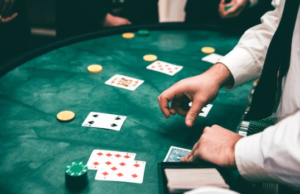 If there are a lot of players who seem to be able to bet on a path or instinct, then the best long-term strategy will be to acquire the ability to generate an appropriate softball strategy. Additionally, it is much easier to understand the odds of success when you are able to fully comprehend the significance of probabilities. Betting is a sport, so having the ability to multiply or divide quickly at a very simple level is guaranteed to be beneficial. Avoid letting past experiences of winning or losing influence your typical betting program. Also, those lucky enough to have a long winning streak should not be lulled into a false sense of security by overbetting, which can lead to a surge.
If there are a lot of players who seem to be able to bet on a path or instinct, then the best long-term strategy will be to acquire the ability to generate an appropriate softball strategy. Additionally, it is much easier to understand the odds of success when you are able to fully comprehend the significance of probabilities. Betting is a sport, so having the ability to multiply or divide quickly at a very simple level is guaranteed to be beneficial. Avoid letting past experiences of winning or losing influence your typical betting program. Also, those lucky enough to have a long winning streak should not be lulled into a false sense of security by overbetting, which can lead to a surge.
 At first, you may determine the card matches. You may locate table games. These games are located in almost all real casinos and also distinct variations online. These variations of the game may also be provided under precisely the same banner as actual casinos, plus they give the chance to play in your house. This report shows some little known misconceptions about internet slot machines. Typically, slot machines account for approximately 70 percent of internet casino earnings. Vintage 3 reel slot machines would be the perfect game for beginners due to their simple and user-friendly format.
At first, you may determine the card matches. You may locate table games. These games are located in almost all real casinos and also distinct variations online. These variations of the game may also be provided under precisely the same banner as actual casinos, plus they give the chance to play in your house. This report shows some little known misconceptions about internet slot machines. Typically, slot machines account for approximately 70 percent of internet casino earnings. Vintage 3 reel slot machines would be the perfect game for beginners due to their simple and user-friendly format. They are quite frequent in British pubs. Progressive online slot machines amass participant deposits in numerous online casinos to make jackpots, which are presently growing. There are over 150 businesses offering software solutions for internet casinos. Microgaming developed the very first”actual” online casino applications in 1994. Online slot machine cover lines differ from 1 to 100. You will find unique pay lines on slot machines.
They are quite frequent in British pubs. Progressive online slot machines amass participant deposits in numerous online casinos to make jackpots, which are presently growing. There are over 150 businesses offering software solutions for internet casinos. Microgaming developed the very first”actual” online casino applications in 1994. Online slot machine cover lines differ from 1 to 100. You will find unique pay lines on slot machines.
 Sports betting may seem complicated at first, but if you know some of that jargon that explains the logic and theories behind every type of bet, everything is easier to understand. Online sports betting on your favorite sports and sporting events is to get used to online sports betting of how the online sports gambling works. To started estimating the chances of the sports event you want to gamble on, if you use online sports betting, you can find these options in the numerous online sportsbooks used by Internet players worldwide.
Sports betting may seem complicated at first, but if you know some of that jargon that explains the logic and theories behind every type of bet, everything is easier to understand. Online sports betting on your favorite sports and sporting events is to get used to online sports betting of how the online sports gambling works. To started estimating the chances of the sports event you want to gamble on, if you use online sports betting, you can find these options in the numerous online sportsbooks used by Internet players worldwide.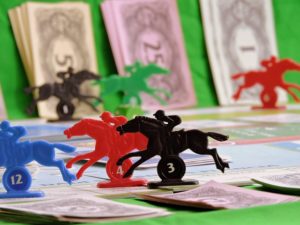 You need to open an account before placing your bet. When you have decided where you are most likely to play your game, you should choose how you want to place your bet. There are many different techniques that you can use to bet the amount of money you prefer, but let’s talk about the spread and how it can help you determine the amount wagered. The distance is a one-point advantage in sports betting that usually benefits the group you normally expect to fall into a certain sporting event.
You need to open an account before placing your bet. When you have decided where you are most likely to play your game, you should choose how you want to place your bet. There are many different techniques that you can use to bet the amount of money you prefer, but let’s talk about the spread and how it can help you determine the amount wagered. The distance is a one-point advantage in sports betting that usually benefits the group you normally expect to fall into a certain sporting event. In this type of chance, both teams’ total score is likely higher or lower than the total score on the list before the match. A parlay bet occurs when you bet on more than one event, usually three. With this type of bet, you get a higher payout if you win, but the trick is that each of these events you bet on is likely to be purchased. If one of these events loses, they all fall back, and you also eliminate what you are betting on.
In this type of chance, both teams’ total score is likely higher or lower than the total score on the list before the match. A parlay bet occurs when you bet on more than one event, usually three. With this type of bet, you get a higher payout if you win, but the trick is that each of these events you bet on is likely to be purchased. If one of these events loses, they all fall back, and you also eliminate what you are betting on.
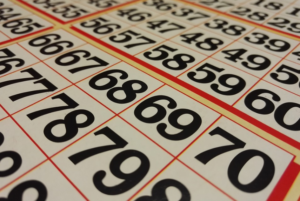 This usually means you can easily play with the
This usually means you can easily play with the  Until the time internet bingo is played for pleasure, the players don’t have anything to lose. However, in case the games begin getting addictive for your gamers, then it may spell trouble. Folks can start betting heavily and should they fail, they could run up huge debts. This may affect their financial future too. Children and older are particularly vulnerable.
Until the time internet bingo is played for pleasure, the players don’t have anything to lose. However, in case the games begin getting addictive for your gamers, then it may spell trouble. Folks can start betting heavily and should they fail, they could run up huge debts. This may affect their financial future too. Children and older are particularly vulnerable.
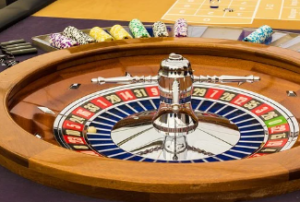 For many people who are taxable in Singapore and do not have the status of permanent residents in the country, the only real requirement is to carry a passport as a sort of identity document proving that they are only tourists from abroad and meet the minimum age for visiting gambling establishments. There is no cost to lie to such visitors. When you enter the gambling establishments, you can stay in the customer’s alley. Please note that the fee allows you to start from the time and date you paid the commission yourself. Your fee will expire, and in case you wish to stay after the 24 hours have expired, you may wish to pay the fee again to gamble in the casino to receive 24 hours.
For many people who are taxable in Singapore and do not have the status of permanent residents in the country, the only real requirement is to carry a passport as a sort of identity document proving that they are only tourists from abroad and meet the minimum age for visiting gambling establishments. There is no cost to lie to such visitors. When you enter the gambling establishments, you can stay in the customer’s alley. Please note that the fee allows you to start from the time and date you paid the commission yourself. Your fee will expire, and in case you wish to stay after the 24 hours have expired, you may wish to pay the fee again to gamble in the casino to receive 24 hours. The last interesting strict rule is the dress code. The security guard will verify compliance with the dress code. He will probably help you make entry to the casinos as easy as possible by noting these Singapore hotels’ casino entry requirements. Therefore it’s important to know what you gonna wear before you enter to the casino.
The last interesting strict rule is the dress code. The security guard will verify compliance with the dress code. He will probably help you make entry to the casinos as easy as possible by noting these Singapore hotels’ casino entry requirements. Therefore it’s important to know what you gonna wear before you enter to the casino.
 It would be best if you comprehended whether it is worth increasing your size. Until you can prove a rate of about 65%, it wouldn’t be worth going forward. It would be better to keep it simple and go back to the 1 unit bet, which is the number one bet in sports betting. Remember not to base the size of your bet on the fact that you are not comfortable with the amount—a balance of performance.
It would be best if you comprehended whether it is worth increasing your size. Until you can prove a rate of about 65%, it wouldn’t be worth going forward. It would be better to keep it simple and go back to the 1 unit bet, which is the number one bet in sports betting. Remember not to base the size of your bet on the fact that you are not comfortable with the amount—a balance of performance.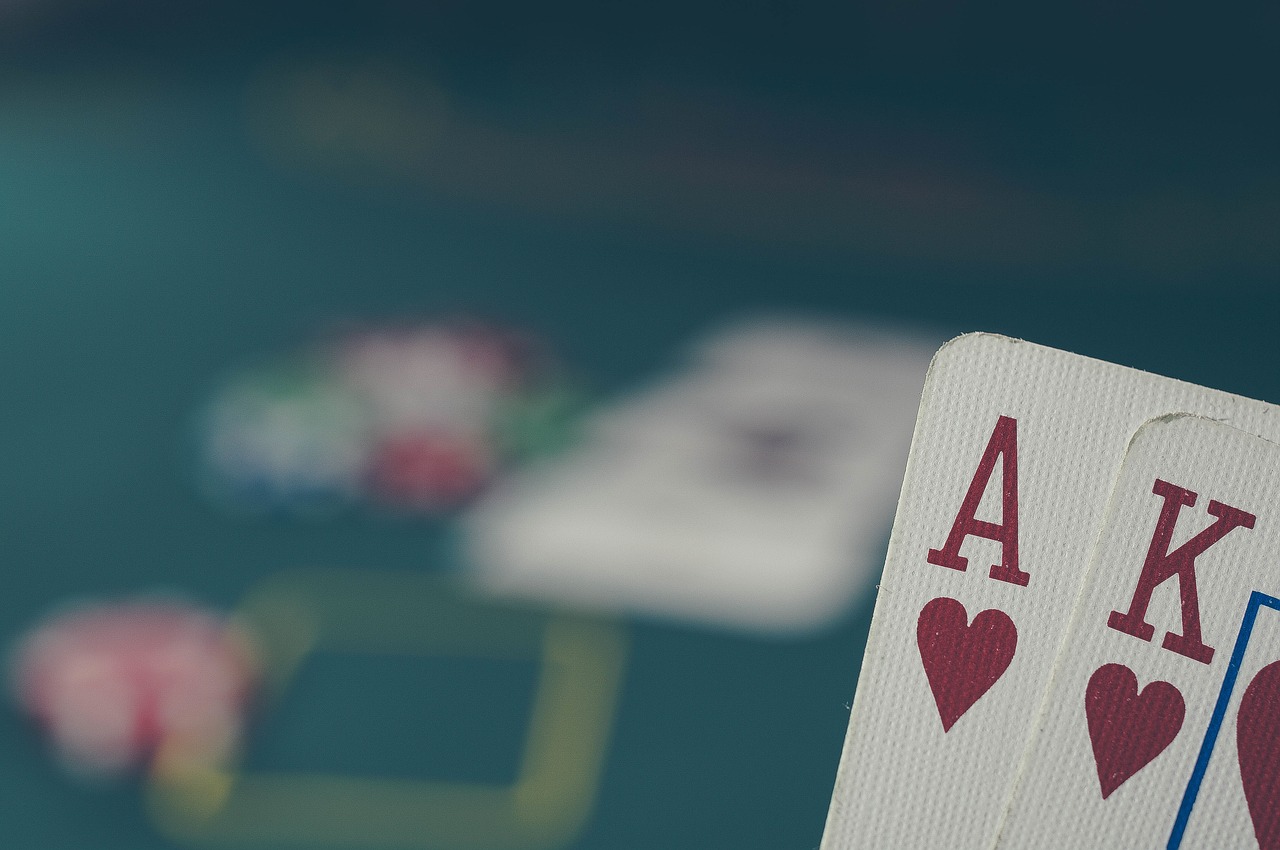
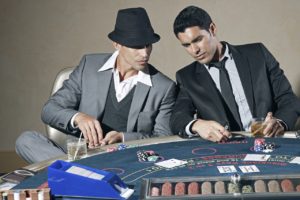 You could have the ability to move ahead and put a bet when you register. This bet might be the
You could have the ability to move ahead and put a bet when you register. This bet might be the  Nowadays, an increasing number of sites are currently coming up with this idea. Based on the amount you pay when you’re registering on a website, the man has been given a specific amount. This is done as soon as the individual makes a particular amount’s deposit.
Nowadays, an increasing number of sites are currently coming up with this idea. Based on the amount you pay when you’re registering on a website, the man has been given a specific amount. This is done as soon as the individual makes a particular amount’s deposit.
 In case you are more likely to generate bets in gambling, be prepared to spend a lot of time. If you don’t have time to analyze yourself, you should consider consulting and taking advice from professionals. If you decide to use a service or sports information service. Make sure you use one that has a proven track record. Otherwise, you could end up getting robbed and losing money. Talk to the right people and gather some tips.
In case you are more likely to generate bets in gambling, be prepared to spend a lot of time. If you don’t have time to analyze yourself, you should consider consulting and taking advice from professionals. If you decide to use a service or sports information service. Make sure you use one that has a proven track record. Otherwise, you could end up getting robbed and losing money. Talk to the right people and gather some tips.
 Sports can include individual and varied sports, from horse racing to tennis, football, basketball, cricket and motorcycling games, all these sports. Countless gamers in the United States, Europe, and parts of Asia have become passionate about it. Day after day, hundreds of sports fans bet on their sports betting websites, which are available today to keep their luck under control.
Sports can include individual and varied sports, from horse racing to tennis, football, basketball, cricket and motorcycling games, all these sports. Countless gamers in the United States, Europe, and parts of Asia have become passionate about it. Day after day, hundreds of sports fans bet on their sports betting websites, which are available today to keep their luck under control. Make sure you understand, and even if understanding is enough, knowledge will be a support. You will need to know the basics of what you are betting on so that you can show which or who you can bet against the fanatics. If you can make pleasant and fruitful bets with this understanding in a short time, you will be. Games in online betting believe there is gambling.…
Make sure you understand, and even if understanding is enough, knowledge will be a support. You will need to know the basics of what you are betting on so that you can show which or who you can bet against the fanatics. If you can make pleasant and fruitful bets with this understanding in a short time, you will be. Games in online betting believe there is gambling.…
 It may seem to sound like typical ethical advice that anyone would give, but from the Law of Attraction is particularly essential. The truth is that you play with cash, even if you play with rent or otherwise. Playing with money will make you backtrack and make it difficult to withdraw money. If the money is a little tight, put a JACKPOT JAR in your seat.
It may seem to sound like typical ethical advice that anyone would give, but from the Law of Attraction is particularly essential. The truth is that you play with cash, even if you play with rent or otherwise. Playing with money will make you backtrack and make it difficult to withdraw money. If the money is a little tight, put a JACKPOT JAR in your seat. You have access if you read these areas. The Internet has many completely free sites where you can practice winning. Find your sport online for free and practice winning sensations.
You have access if you read these areas. The Internet has many completely free sites where you can practice winning. Find your sport online for free and practice winning sensations.